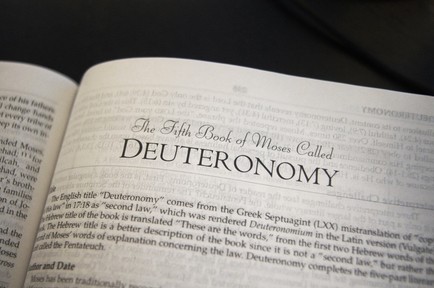Deuteronomy: Introduction

Welcome to the gospel according to Moses
Deuteronomy, sum up the central truths and basic principles Moses has come to understand through his many years of intimate relationship with the Lord. Speaking under the inspiration of God’s Spirit, Moses rehearses the history of God’s saving work for Israel. He explains the motives that lie behind God’s choice of Israel and God’s gift of the Law.
How does the Bible talk about Deuteronomy?
In the Old Testament it says:
In the New Testament it says:
What of the name of the book: Deuteronomy? What does this mean?
laid Israel under the obligation to love, gratitude, and obedience
The first principle is to hear the word
To live any other life was tantamount to a rejection of Yahweh’s gracious intentions for his people.
Our second principle is to recognise its setting geographically and within the rest of the canon of Scripture
Principle 3: Genre
• The first address (1:6–4:40)
• The second address (5:1–26:19, and then 28 is also part of it)
• The third address (chapters 29–30)
• Then the benediction song, the closing song of this service (chapter 32)
• And Moses’ final blessing and benediction of the people (chapter 33)
